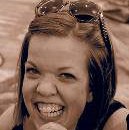- A
- A
- A

Untold Stories
“When you hear so many people around you telling your story, you then come to understand that it is not really YOUR story. It’s a lot of people’s story.” – Byllye Avery
Byllye Avery was not talking about disability in the above quote, but she could have been. When members of any marginalized group tell their story, it represents much more than their individual struggle. It is the story of a community. In other words, these individual stories of disability are the brush strokes of the mural that is our community’s history and culture. I believe it is through these stories that the world will change to be more accepting and accessible. This is exactly why we need to tell more stories about life with a disability.
Yet, there seems to be a certain kind of resistance within all forms of media of telling the real stories of life with a disability. I recently conducted a pretty broad research analysis on media and realized that there are very few to no real stories of life as a disabled person needing long-term care, yet this is the reality of millions of people today. There are compelling stories that need to be told of those stuck in institutions and the activists that are spending their lifetimes trying to get them out. These are rich stories of despair, struggle and triumph. They take place in hospital rooms and in boardrooms; the drama is in the halls of nursing homes and congress.
But, again, why aren’t these stories being told? Or, better yet, why is the media so scared to tell them? Media has the power to give voice to many of our stories, but we are repeatedly being ignored. As the Media and Entertainment Advocate for The Center for Disability Rights, I recently reached out to dozens and dozens of producers, directors and writers to try to start a conversation about these stories that have been left untold. I received only a single reply and that was a rejection.
The institutional bias does not need to be a media bias. Surely, even media executives have a brother, sister, aunt or grandmother that is experiencing the institutional bias and are stuck in a nursing home. Maybe, it’s just that most people can’t recognize that the world could be different if we took these stories seriously. It is by telling these stories that we can start writing a new story.
Leah Smith is a writer, communications professional and disability advocate. Leah holds a Bachelor’s in Public Relations and a Masters in Public Administration and Policy. She has focused her career on creating access and equality for all. Leah currently resides in Philadelphia with her partner and two dogs.